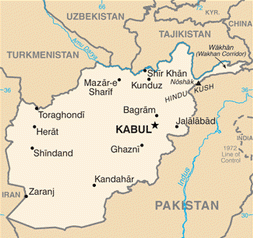The Pentagon Tuesday released a report on the progress of the war in Afghanistan that acknowledged a “resilient” Taliban and pointed to “long-term and acute challenges” as the military prepares for a considerable drawdown of forces in 2014.
 Like all such Pentagon reports, mandated by Congress to be submitted every six months, this one touts supposed “progress” and so-called “security gains,” while noting they are “fragile and reversible.” But the inkling that the fundamental mission of eliminating the Taliban has failed is a notable conclusion.
Like all such Pentagon reports, mandated by Congress to be submitted every six months, this one touts supposed “progress” and so-called “security gains,” while noting they are “fragile and reversible.” But the inkling that the fundamental mission of eliminating the Taliban has failed is a notable conclusion.
The true nature of the failure in Afghanistan is much worse than the report indicates, though. For example, the January National Intelligence Estimate concluded the war is still a “stalemate,” that the Taliban are still strong, that the government Washington has propped up is plagued by pervasive corruption and illiberal policies, etc.
Lt. Col. Daniel Davis in February submitted his own report to Congress criticizing the “rosy official statements by U.S. military leaders about conditions on the ground” in Afghanistan, which he claimed bore “no resemblance” to the truth.
“Our current military leadership,” Davis wrote, “is so distorting the information it releases that the deterioration of the situation and the failing nature of our efforts is shielded from the American public (and Congress), and replaced instead with explicit statements that all is going according to plan.”
This widespread failure in Afghanistan is part of why the U.S. won’t actually be leaving on the date constantly labeled the end of the war. A huge contingent of U.S. forces will remain in Afghanistan beyond 2014, perhaps until 2024, and operations like night raids and drone strikes into Pakistan will continue unabated. Instead of cutting America’s losses and quitting the lost war, Obama is continuing it for another decade.


